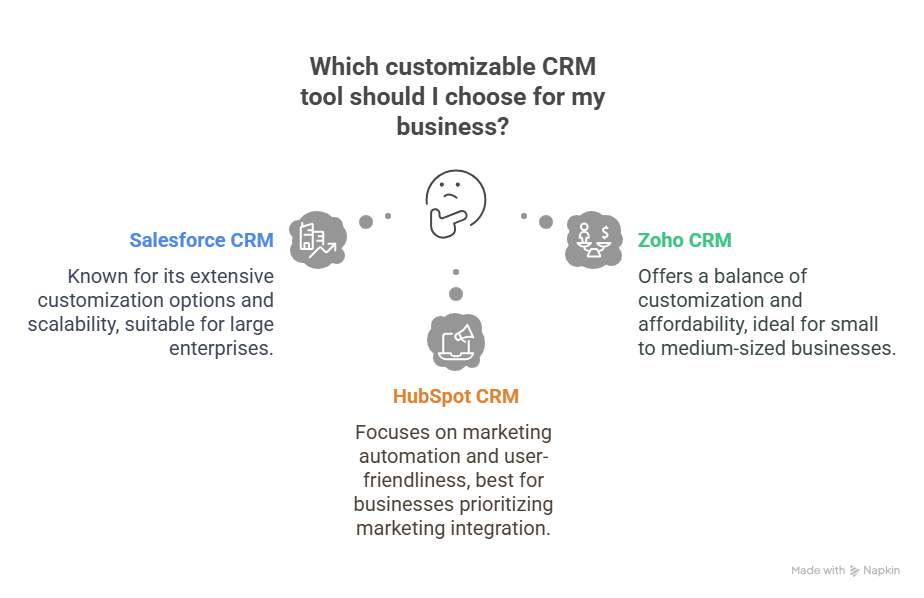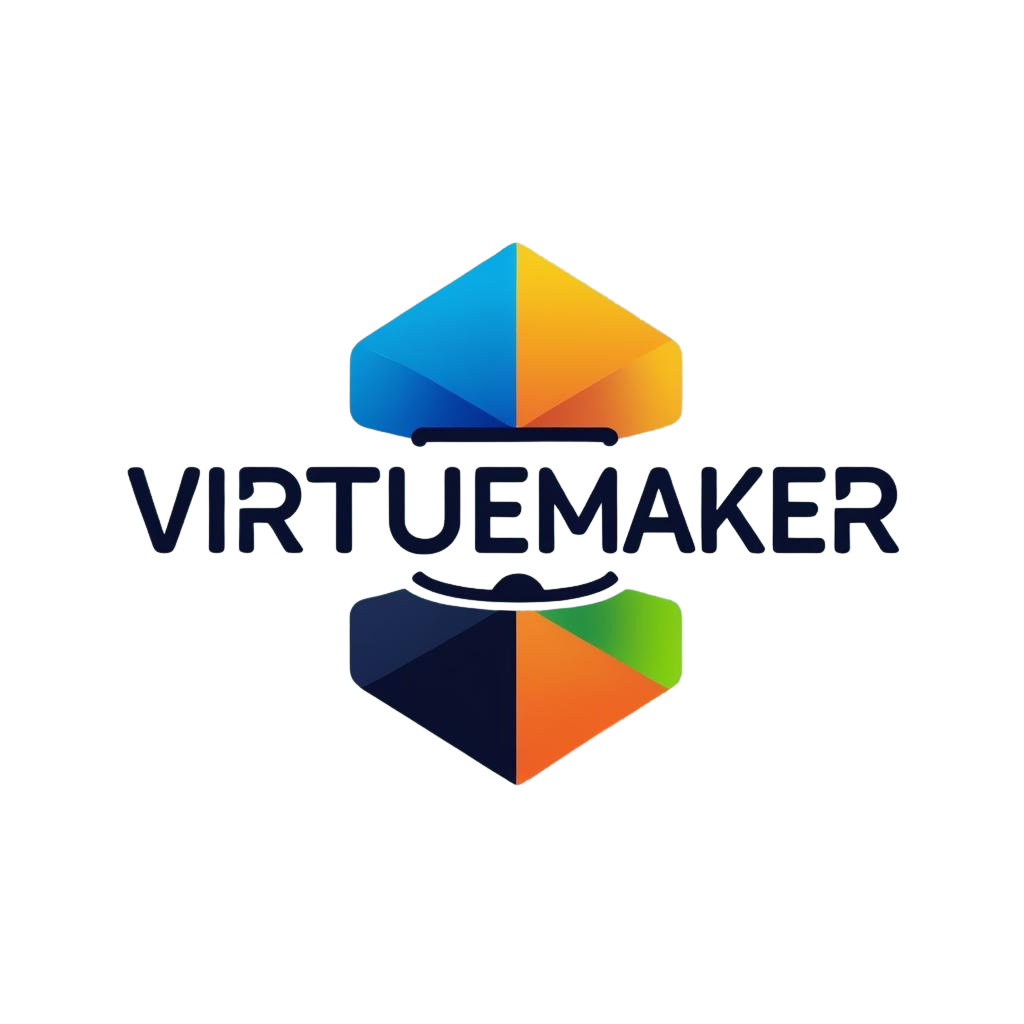In today’s fast-paced business environment, managing customer relationships effectively is crucial. Did you know that businesses using tailored CRM solutions see up to a 30% increase in sales? This statistic highlights the importance of finding the right CRM software that adapts to your business needs.
With numerous options available, selecting a CRM that fits your unique requirements can be challenging. This article will guide you through the best customizable CRM tools and crm software solutions, exploring their benefits and how to choose the one that streamlines your operations and enhances customer relationships.
Whether you’re a small business or an enterprise, the right CRM can be a game-changer. Let’s dive into the world of CRM customization and discover how these solutions can boost productivity and drive business growth.
Why Businesses Need Customizable CRM Tools
Customizable CRM tools are no longer a luxury, but a necessity for businesses seeking to optimize their operations. Many businesses settle for one-size-fits-all CRM solutions, but these can be limiting.
The Limitations of One-Size-Fits-All Solutions
Generic CRM solutions often fail to address the unique needs of a business, leading to inefficiencies and reduced productivity. Personalized CRM systems allow businesses to tailor the software to their specific requirements, enhancing overall performance.
How Customization Drives ROI and Adoption
By customizing a CRM platform, businesses can ensure it aligns with their processes and goals, driving higher adoption rates and a stronger return on investment. CRM platform customization enables companies to maximize the benefits of their CRM tools.
Top Customizable CRM Tools for Different Business Types
Customizable CRM tools have become essential for businesses looking to streamline their customer relationship management processes. Different businesses have different needs, and the right CRM tool can vary accordingly. In this section, we’ll explore three top customizable CRM tools: Salesforce CRM, Zoho CRM, and HubSpot CRM.

Salesforce CRM: Enterprise-Grade Customization
Overview
Salesforce CRM is a powerful tool designed for large enterprises, offering enterprise-grade customization to meet complex business needs. It provides a comprehensive suite of features that can be tailored to specific business requirements.
Pros
The pros of using Salesforce CRM include its scalability, advanced security features, and extensive integration capabilities. These features make it an ideal choice for large businesses with complex CRM needs.
Cons
However, Salesforce CRM can be expensive and may require significant training and support to fully utilize its features. This can be a barrier for smaller businesses or those with limited resources.
Features
Key features of Salesforce CRM include customizable dashboards, advanced reporting tools, and AI-powered sales forecasting. These features enable businesses to gain valuable insights into their customer data and make informed decisions.
Zoho CRM: Flexible Options for SMBs
Overview
Zoho CRM is a flexible and affordable CRM solution designed for small to medium-sized businesses (SMBs). It offers a range of customization options to help businesses tailor the tool to their specific needs.
Pros
The pros of using Zoho CRM include its user-friendly interface, affordable pricing, and seamless integration with other Zoho apps. These features make it an attractive option for SMBs looking for a customizable CRM solution.
Cons
However, Zoho CRM may lack some of the advanced features available in other CRM tools, and its customer support can be improved. Despite this, it remains a popular choice for SMBs.
Features
Key features of Zoho CRM include customizable modules, automated workflows, and integrated sales forecasting. These features enable businesses to streamline their CRM processes and improve sales performance.
HubSpot CRM: Marketing-Focused Customization
Overview
HubSpot CRM is a marketing-focused CRM tool that offers advanced customization options for businesses with a strong marketing focus. It provides a range of features to help businesses manage their customer data and marketing campaigns.
Pros
The pros of using HubSpot CRM include its seamless integration with HubSpot Marketing, user-friendly interface, and comprehensive sales and marketing analytics. These features make it an ideal choice for businesses with a strong marketing focus.
Cons
However, HubSpot CRM may have limited customization options compared to other CRM tools, and its pricing can be a barrier for larger businesses. Despite this, it remains a popular choice for businesses with a marketing focus.
Features
Key features of HubSpot CRM include customizable contact properties, advanced sales analytics, and integrated marketing automation. These features enable businesses to gain valuable insights into their customer data and improve their marketing efforts.
How to Evaluate and Select the Right Customizable CRM for Your Unique Needs
Selecting the right customizable CRM can be a daunting task, but with a clear understanding of your business needs, you can make an informed decision. To do this, you need to evaluate your business requirements and identify the features that are essential to your operations. A customizable CRM should align with your business goals and processes.
Key Customization Features to Look For
When evaluating a customizable CRM, there are several key features to look for. Workflow automation is one such feature that can significantly enhance productivity by automating repetitive tasks. Additionally, personalized dashboards allow users to tailor their interface to meet their specific needs, improving user adoption and overall experience.
Other important features include customizable fields and modules, which enable businesses to adapt the CRM to their unique requirements. Integration with existing tools and systems is also crucial, ensuring seamless data flow and minimizing disruptions.
Implementation and Integration Considerations
Once you’ve identified a CRM that meets your customization needs, it’s essential to consider implementation and integration. This includes assessing the CRM’s compatibility with your existing infrastructure and ensuring that it can be integrated with other tools and systems. A well-planned implementation strategy is critical to minimizing downtime and ensuring a smooth transition.
It’s also important to evaluate the level of support provided by the CRM vendor, including training and ongoing maintenance. This ensures that your team has the necessary resources to effectively use the CRM and address any issues that may arise.
Conclusion
Customizable CRM tools are vital for businesses seeking to optimize operations, enhance productivity, and foster stronger customer relationships. By understanding the benefits and features of different CRM tools, such as customizable CRM software features, businesses can make informed decisions when selecting the right one for their unique needs.
Whether you’re a small business or an enterprise, the right CRM can help you streamline processes, improve customer engagement, and drive growth. When evaluating CRM options, consider the level of customization, integration capabilities, and scalability to ensure the chosen solution aligns with your business goals.
By leveraging customizable CRM software features, businesses can create a tailored solution that meets their specific requirements, leading to improved efficiency, enhanced customer satisfaction, and increased revenue.
FAQ
What are the benefits of using a customizable CRM tool?
Customizable CRM tools allow businesses to tailor the software to their specific needs, resulting in increased efficiency and productivity. By personalizing the CRM, businesses can ensure that it aligns with their unique processes and goals.
How do I choose the right customizable CRM for my business?
To choose the right customizable CRM, consider your business needs, the level of customization required, and the CRM’s features and pricing. It’s also essential to evaluate the CRM’s implementation and integration considerations.
What are some key customization features to look for in a CRM?
Key customization features to look for include workflow automation, personalized dashboards, and tailored customer relationship management tools. These features enable businesses to streamline operations and enhance customer relationships.
Can I integrate a customizable CRM with my existing systems and tools?
Yes, most customizable CRM tools offer integration options with existing systems and tools. It’s crucial to evaluate the CRM’s integration capabilities to ensure seamless integration with your business’s technology stack.
How do customizable CRM software solutions improve customer relationships?
Customizable CRM software solutions improve customer relationships by enabling businesses to tailor their customer engagement strategies to their unique needs. This leads to more personalized and effective customer interactions.
What is CRM platform customization, and how does it benefit my business?
CRM platform customization involves tailoring the CRM platform to meet the specific needs of your business. This benefits your business by increasing efficiency, productivity, and customer satisfaction.
Are there different types of customizable CRM tools available?
Yes, there are various customizable CRM tools available, including Salesforce CRM, Zoho CRM, and HubSpot CRM, each catering to different business types and needs.

